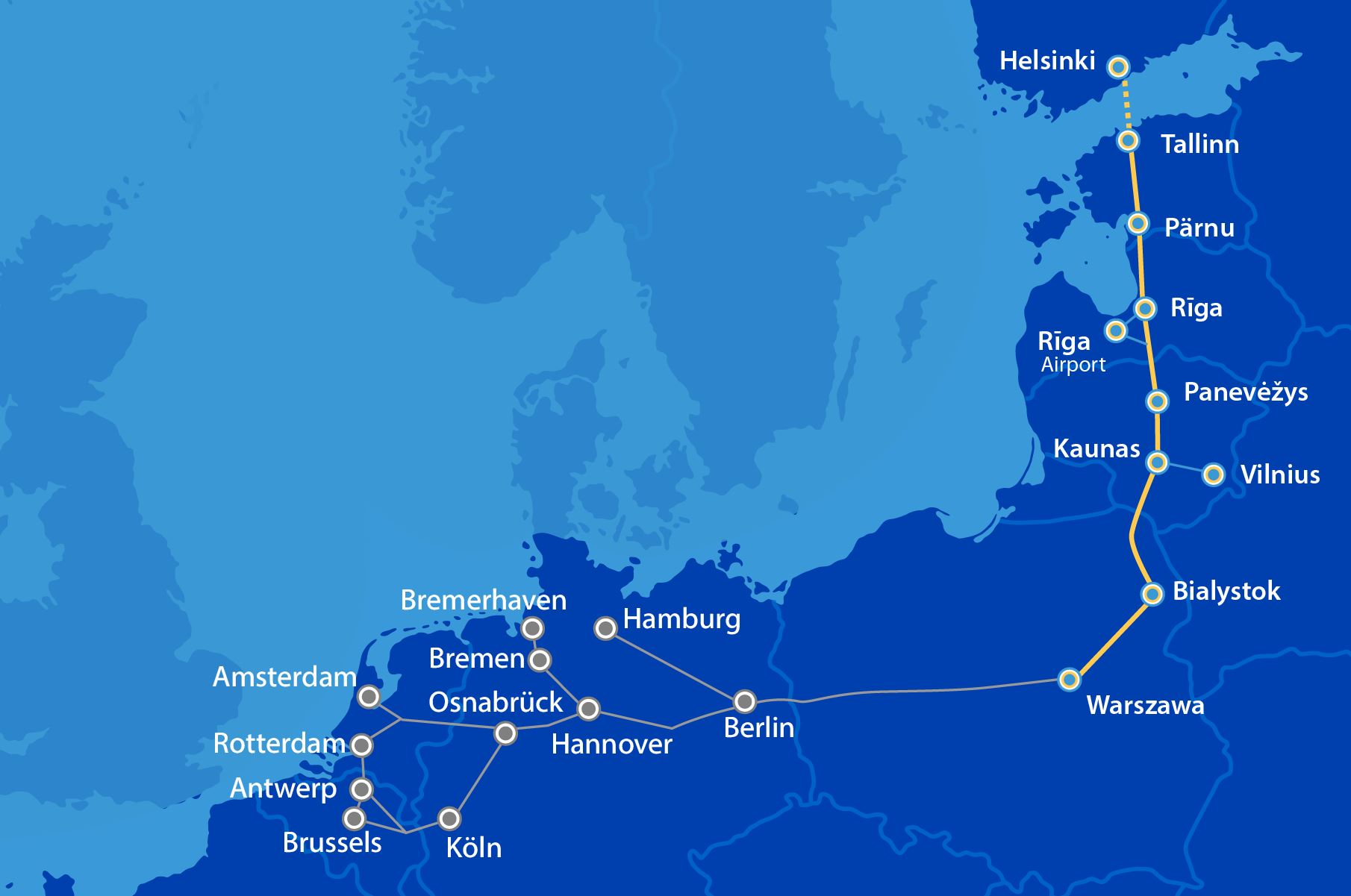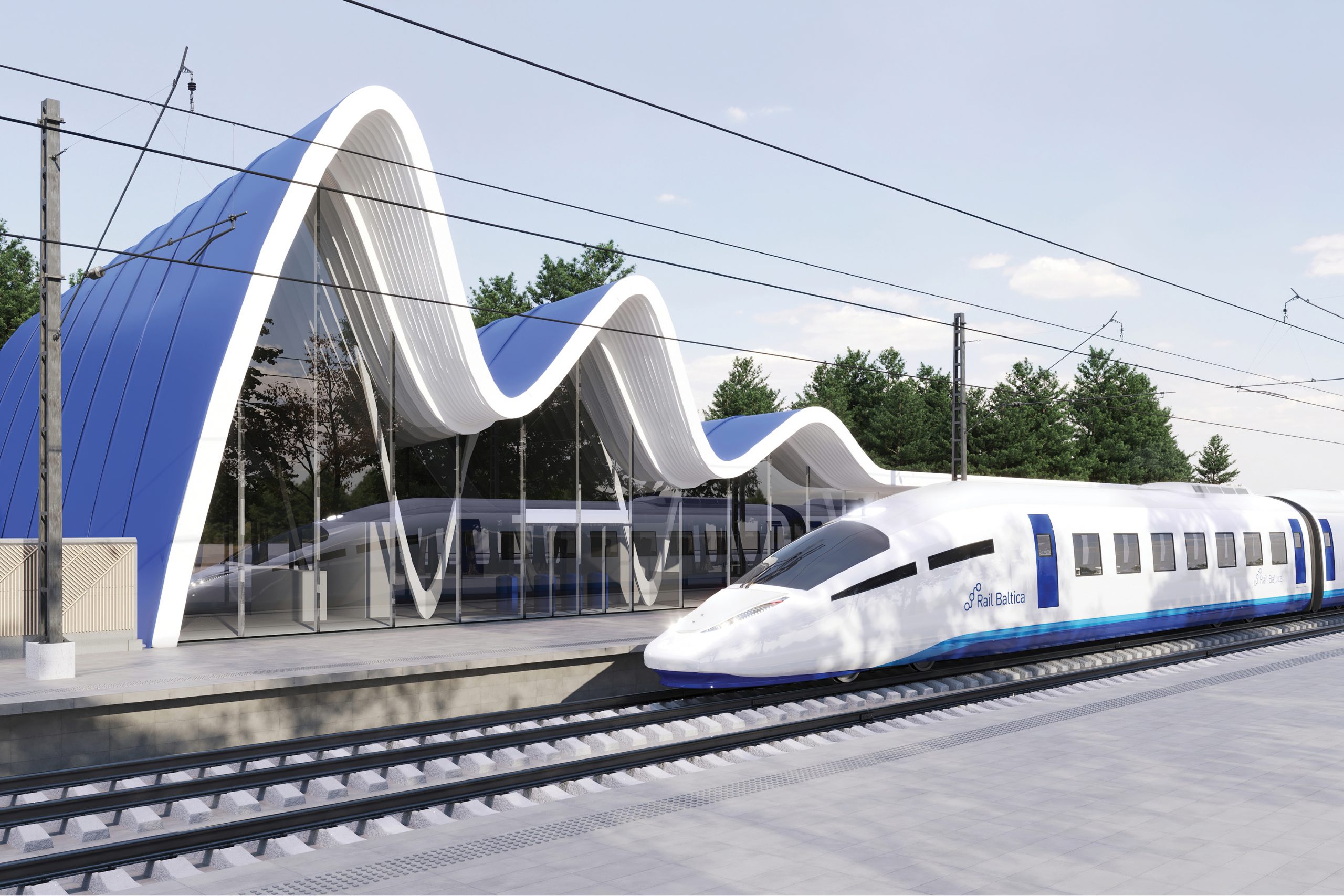The foundation stone for the US$4 billion (3.7 billion euro) Rail Baltica high-speed line has officially been laid in Latvia. Budimex, Polish construction subsidiary of Ferrovial, together with its partners withing the ERB Rail joint venture took part in a ceremony in Riga, Latvia. The project is a major investment from the Baltic counties to boost railway interconnections. Countries involved in the project include France, Italy, Lithuania, Estonia, Poland and Latvia. Interestingly, during the groundbreaking ceremony, a time capsule was buried at the initial site. Officials stated that it is meant to symbolize their commitment to future generations. Representatives from the European Commission were also present at the event.

Rail Baltica Length
Rail Baltica will cover 220 kilometers. The project involves 175 engineering structures and 11 wildlife crossings. Moreover, there wil be 42 viaducts, 81 road bridges, and 32 rail bridges. The first part of construction is taking pace in the Bauska region of Latvia. This is where Rail Baltica’s maintenance center is situated. It will also serve as the base from which the main line is built. The maintenance center will cover an area of approximately 16.5 hectares. It will facilitate the construction of connections to the existing 1520 mm track network. It will also maximize the use of the railway for transporting construction materials and machinery.
The high-speed rail project is aimed at being a key driver for the development of transportation in the Baltic region. The line will boost economic growth and social cohesion in the area in addition to improving the connectivity in Europe. Interim Chairperson of the Management Board of RB Rail AS Marko Kivila, stated that over 150 kilometers of rail will be under construction this year.
Also Read: US$3 billion Hafeet Rail between UAE and Oman greenlit for construction
Rail Baltica Speed
With a design speed of 249 km/h, Rail Baltica will significantly reduce travel times between the Baltic States and major European cities. It will serve as a modern infrastructure for passenger, freight, and military mobility, promoting accessibility and facilitating business, tourism, and cultural exchange. Furthermore, the double track will be fully electrified, with a standard gauge of 1435 mm. To meet European standards, the railway will be equipped with ERTMS (European Rail Traffic Management System).

Through the Connecting Europe Facility is a European Union program that is aimed at eliminating mobility and improving cross-border connections. The program has funded 85% of the project’s costs which underlines the strategic importance of Rail Baltica for the Baltic region and for European connectivity in general. Additionally, the program promotes the interoperability of transport systems. This will facilitate the development of an efficient, integrated transport network throughout Europe.
Officials are making efforts to stay within budgetary limits and meet the EU’s expectations. In order to do this, three countries may have to make amendments to the original plan. This may involve reducing maximum speeds, delaying a connection to Riga, and bypassing Vilnius
Project Team
ERB Rail consortium, the project team, consists of 3 companies. These are Budimex S.A., Eiffage Génie Civil SAS, and Rizzani de Eccher S.p.A.
Also Read: Construction Commences on the Mega $17 Billion Iron Ore Rail-and-Port Scheme in Guinea
“As part of the ERB Rail consortium, we are making a strategic investment for our entire region and will be responsible for the construction of the civil engineering and track. It is an honor to be chosen to build Rail Baltica, and it is also a challenge, given the scope of the project,” said Artur Popko, general manager and chairman of Budimex’s Management Committee. Budimex, a subsidiary of Ferrovial, controls 30% of the consortium.
“This project’s greatest challenge will be integrating the various organizations and cultures in a common project with the highest standards of safety and quality,” said Jaime Rontome Pérez, member of the ERB Rail Management Committee. He went on to say that he believes the participation of companies with extensive experience in rail projects, such as the Warsaw West Station in Poland and the Brittany–Pays de la Loire line in France, “guarantees success and responsible construction, but it is also a great challenge for all the partners”.
Collaboration with Technical University of Riga
“Given the scale of the work, national construction companies will also need to be involved in the main construction works. Another important direction will be the cooperation with the Technical University of Riga, attracting students who will have the unique opportunity to gain experience in a European railway infrastructure construction project,” said Andy Swift, the Project & Construction Director of E.R.B. Rail JV. “It should be noted that this is a multi-year project, so ERB Rail’s collaboration with local engineers and current and future students is essential to the success of the project,” he added.
